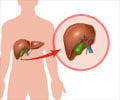The safety and efficacy of bilateral liver resection for bilateral intrahepatic stones has always been a debatable topic among surgeons.
The safety and efficacy of bilateral liver resection for bilateral intrahepatic stones has always been a debatable topic among surgeons. Now a research article to be published on August 7, 2009 in the World Journal of Gastroenterology addresses this question.
In the present study, 101 consecutive patients with bilateral intrahepatic stones who underwent bilateral liver resection in the past 10 years were reviewed retrospectively. This study demonstrated that bilateral liver resection for bilateral intrahepatic stones was safe, with zero surgical mortality and an acceptable level of postoperative morbidity (28.7%).Its the long-term outcome was satisfactory, with a stone recurrence rate of 7.9% and an acute cholangitis rate of 6.5%. Bilateral liver resection is safe and its short- and long-term outcomes are satisfactory for patients with bilateral intrahepatic stones.This research, led by Professor Liang Li-Jian and his colleagues in the Department of Hepatobiliary Surgery, the First Affiliated Hospital, Sun Yet-san University reported that bilateral liver resection was feasible and safe for patients with bilateral intrahepatic stones. The results demonstrated that the short- and long-term outcomes after bilateral liver resection were satisfactory.
It does not mean that every patient with bilateral intrahepatic stones should undergo bilateral liver resection. In fact, bilateral liver resection is indicated in patients whose stone-affected segments are atrophic and/or the stone-bearing bile ducts are strictured and the future remnant liver remnant is sufficient. Finally, this study may extend the clinical application of hepatectomy for intrahepatic stones. Therefore, it may improve the outcome of patients with bilateral intrahepatic stones.
Source-Eurekalert
RAS















